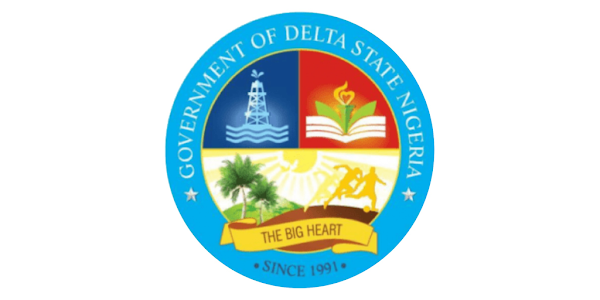AT a time most of Nigeria’s 36 states are weighed down by burgeoning debt portfolios and constant borrowing, Delta State has set an inspiring example of responsible governance. This is gleaned from the recently released data from the Debt Management Office (DMO), showing that the state has not only significantly reduced its external debt by $2.38 million (a 4 per cent drop), but has also recorded the highest domestic debt reduction in the entire country. According to the report, Delta had cut down its indebtedness by a staggering ₦265.83 billion.
This achievement is quite commendable given that nearly two years of Governor Sheriff Oborevwori in office, he had not borrowed a kobo despite the various ambitious, multi-billion naira infrastructure projects and socio-economic investments it had embarked upon since May 2023. The governor’s fiscal prudence and focus on cost-efficiency show the possibility of achieving meaningful development without plunging future generations into debt.
Delta’s decision to tighten its financial belt has far-reaching implications. By reducing its debt, the state has created much-needed fiscal space to fund capital projects, adding to the array of world-class roads, flyovers, and bridges already transforming the state’s landscape, linking towns and cities. It also frees up critical resources that can now be redirected to social investment programmes, youth empowerment initiatives, and welfare schemes designed to uplift the standard of living of Deltans.
Governor Oborevwori’s model of governance stands in sharp contrast to the debt culture which has sadly taken root in many parts of Nigeria. In several states across the country, it has become routine for administrations to borrow recklessly and then hand over huge debt to successors, who often struggle to keep the machinery of governance running. This cycle has persistently crippled development and deepened citizens’ distrust in leadership across the nation.
Delta’s example shows there is another way, one which does not sacrifice the future greatness for the purblind inclination of misguided political operators . Delta’s performance is even more distinctive when viewed alongside states traditionally seen as economic powerhouses. While Lagos reduced its domestic debt by ₦96.25 billion and Ogun by ₦81.34 billion, Delta outperformed them all. It proves that it is not just about how much revenue a state rakes in, but how prudent it is spent.
Fiscal responsibility, when matched with smart planning, decision-making and clear-cut priorities, can yield extraordinary results. Moreover, this fiscal feat is expected to strengthen investor confidence in the state, which could further boost economic growth in key areas such as agriculture, ICT, education, and healthcare.
Governor Sheriff Oborevwori deserves commendation for this latest feat. He has indeed lived up to the reality of his manifesto, the MORE Agenda–to make Delta a debt-free state and stimulate sustainable progress and all-round development. Debt reduction is not just a mere statistic; it is a statement of intent by the Governor who is well-aware that a geopolitical entity burdened by debt can hardly make progress. Of course, there’s a correlation between his debt-reduction commitment and avowal to develop and grow the state’s economy beyond the wildest imagination of our people.
It shows that good governance bolstered by the political will of leadership to prioritise long-term prosperity over short-term gain can produce beneficial outcomes for the citizenry. As other states grapple with their fiscal burdens, the Delta example stands tall as a beacon of what is possible when leaders put people first and manage resources prudently.
Our considered opinion is that Oborevwori had done well on the issue under discourse. If the former and present governors of the subnational entities had walked such a path, the growing debt burden and its negative impact on social and economic development would have been avoided. We therefore urge governors whose states are affected by indebtedness to emulate the Oborevwori model in the long-term interest of their states.


